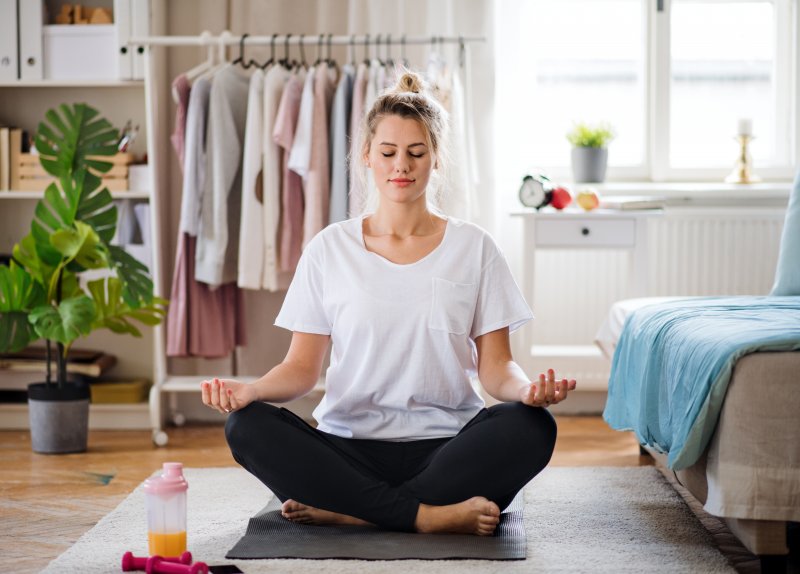
Sleep is intrinsically connected to the health of your mind and body. Poor sleep can be the result, or cause, of many physical and mental ailments. That’s why diet, physical exercise, and mental wellbeing are all important points of discussion when trying to improve sleep quality. Fortunately, there is a centuries-old practice that you can begin today, in your own home, to improve your sleep quality as well as mental and physical health: meditation.
Mindfulness Meditation Benefits for Sleep
Improved Sleep Quality & Melatonin Production
Those who partake in mindfulness meditation are more likely to improve their sleep versus those who do not. Based on a study published in JAMA Internal Medicine, people who practice mindfulness experience less depression, daytime fatigue, and insomnia. Meditation has also been reported to enhance melatonin, a key hormone that regulates the sleep cycle. With greater melatonin production, we can conclude that meditation is an easy, low-impact way to improve sleep quality.
Less Stress & Anxiety
Mindfulness meditation evokes “the relaxation response,” a deep physiological shift that counters the stress response, an emergency reaction that triggers anxiety. Mindfulness changes the psychological “rut” your mind can carry due to day-to-day stress and helps you be present in the moment. The relaxation response can also improve ailments such as depression, anxiety, physical pain, and high blood pressure, all of which have been linked to an inability to get a full night’s rest.
By participating in mindfulness meditation, you are not only healing your mental state, but improving your ability to sleep peacefully.
How to Meditate
While there are many online resources and books to help you kickstart your journey into meditation, there are a few basics that everyone can easily follow.
As outlined in “How to Meditate” by mindful.org, meditation begins by finding a comfortable place to sit still. You’ll then focus on your breathing: in… and out, paying close attention to how you’re naturally breathing. Is it from your belly and then up through your mouth, or up through your nose? Focus your attention inward and follow the natural flow of your breathing.
For beginners, it may be easiest to follow a guided meditation to help you ease into the desired meditative state needed to feel a sense of relaxation. It’s often easier to start slow, meditating for just a few minutes, and then work your way up to a longer period of time.
Meditation & Sleep Disorders
Of course, while meditation can enhance sleep in many ways, the one thing it can’t do is overcome a sleep disorder like sleep apnea. For this, you’ll need to seek professional help.
If you can never seem to get enough rest, have been told you snore every night, often wake up out of breath, or suffer from morning headaches and a sore throat, it’s time to call Dr. Jeff Rodgers. He provides treatment for sleep apnea in the form of oral appliances, an alternative to CPAP machines that are preferred by many patients.
Schedule a free consultation here.
